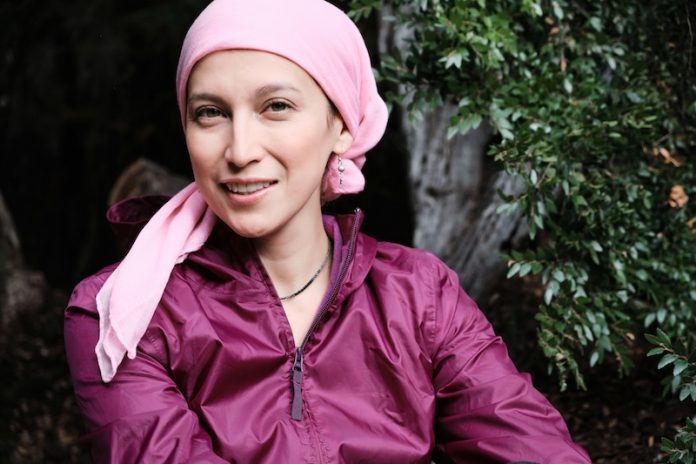
For many women living with advanced breast cancer, everyday activities can become more difficult over time.
Fatigue, pain, and loss of muscle strength are common problems caused by both the illness and its treatments.
But a new international study is showing that exercise can make a big difference — even for people whose cancer has spread to other parts of the body.
Researchers found that aerobic and strength training can greatly improve muscle strength, balance, and overall physical performance in people with metastatic breast cancer.
These findings were shared at the Advanced Breast Cancer Eighth International Consensus Conference (ABC8) by Professor Anne May, a specialist in cancer survivorship at the University Medical Center Utrecht and the Netherlands Cancer Institute.
Professor May explained that patients with advanced cancer were often left out of past exercise studies, so doctors didn’t have enough evidence to say whether exercise could help them. Treatments for breast cancer, such as chemotherapy and hormone therapy, often cause fatigue, pain, and nausea.
These symptoms, combined with being less active, lead to muscle loss. When people lose too much muscle, it affects their strength, balance, and quality of life — and it can even make cancer treatment harder to tolerate.
To learn more, Professor May and her team led a large study called the PREFERABLE-EFFECT trial. This research included 357 patients from six countries: Germany, Poland, Spain, Sweden, the Netherlands, and Australia.
All the patients had stage IV metastatic breast cancer, and most were receiving ongoing treatment. About three-quarters of them had cancer that had spread to their bones.
Half of the participants received standard care, while the other half joined a nine-month supervised exercise program. For the first six months, they worked out with a trainer twice a week, doing aerobic, strength, and balance exercises.
In the final three months, they did one session with a trainer and one on their own. Everyone in the study also got an activity tracker and was encouraged to stay active for at least 30 minutes each day.
The results were impressive. After just three months, the exercise group had stronger muscles, better balance, and more lean body mass compared to the group that did not exercise. Their arm and leg muscles increased by about half a kilogram on average, while the control group lost muscle during the same period.
Even after six months, the exercise group maintained higher muscle mass and strength. This is important because strong muscles help with daily movement and lower the risk of falls — something especially critical for people with bone metastases.
One patient in the program had trouble getting on and off a bus before joining the study. After several months of supervised exercise, she regained enough strength and confidence to take the bus again, something that brought her independence and joy. Stories like hers highlight how physical improvements can also bring emotional benefits.
The study showed that exercise did not change body fat but did significantly increase muscle mass and balance. These physical gains can help patients tolerate treatment better and improve their overall health. Professor May emphasized that maintaining muscle is linked to better survival and quality of life for cancer patients.
Experts believe this research could change how advanced breast cancer is treated. Instead of focusing only on medication and surgery, healthcare providers are now recognizing the importance of exercise as part of cancer care.
The researchers recommend that supervised, personalized exercise programs become a regular part of treatment for people with metastatic breast cancer.
To support this approach, the ABC Global Alliance plans to launch a Physical Activity Resource Hub in 2026. This online resource will provide videos, exercise guides, and helpful tips for patients, caregivers, and healthcare professionals.
It will offer guidance for people at different fitness levels and with different symptoms, helping them safely include physical activity in their lives.
Experts involved in the project stress that exercise must be tailored and supervised to make sure it is safe. Physiotherapists like Isabelle Aloi-Timeus, who leads a cancer charity in Mexico, say that personalized programs are key to helping patients stay active without injury.
Patients like Eva Schumacher-Wulf, who lives with advanced breast cancer and helps develop the exercise hub, say these programs offer hope and control. “We all know how important exercise is,” she said, “but people with advanced cancer have special needs, and not every exercise program works for them.”
Professor Fatima Cardoso, president of the ABC Global Alliance, said that research like this helps patients live better and feel more empowered. “Finding a balance between quality and quantity of life is essential,” she said. “Exercise can help patients improve their strength, confidence, and control over their health.”
Overall, the study offers strong evidence that exercise is not only safe but also highly beneficial for people living with metastatic breast cancer. It helps them regain independence, reduce fatigue, and feel stronger — both physically and emotionally.
By including exercise as part of cancer care, doctors can help patients live better lives, even while managing advanced disease.
If you care about breast cancer, please read studies about how eating patterns help ward off breast cancer, and soy and plant compounds may prevent breast cancer recurrence.
For more health information, please see recent studies about how your grocery list can help guard against caner, and a simple way to fight aging and cancer.
Copyright © 2025 Knowridge Science Report. All rights reserved.



